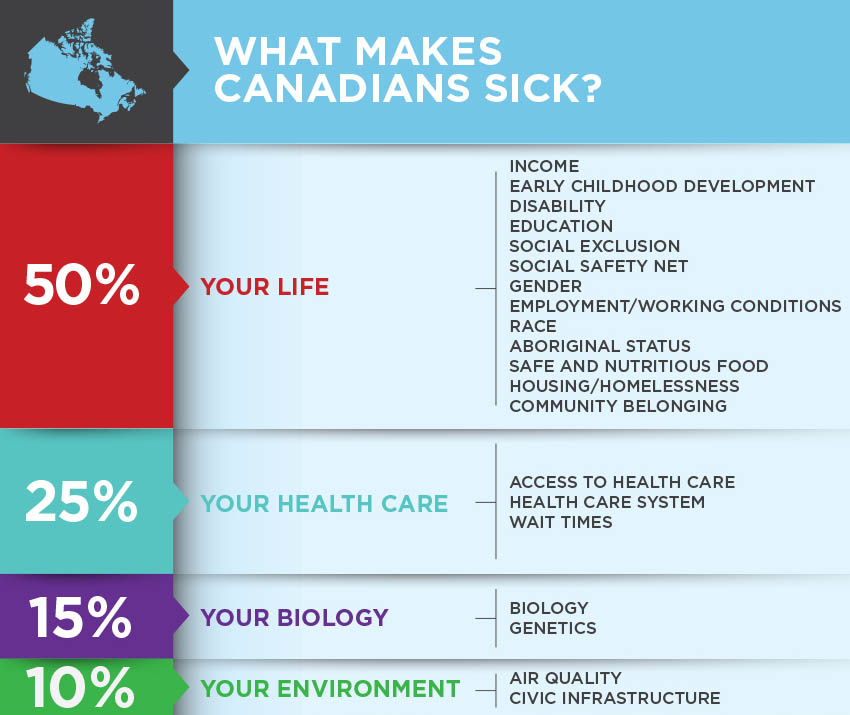Login
Signup
Posted By Camilia Thieba
Experiences of racism and oppression – How do you protect your health?

Thank you for attending this workshop. We hope that we have shown you that decades of research demonstrate the links between experiences of racism and oppression and health as well as inspired and empowered you.
- The Canadian Medical Association (CMA) in its recommendations for effective poverty reduction strategy clearly demonstrates that up to 50 % of a person’s health is linked to their experiences, social and economic environment.
- Unfortunately, experiences of racism and oppression are still controversial and there are some skeptics who would say they it does not exist. A few definitions were presented but here is a great resource if you want to learn more about these terms. https://www.racialequitytools.org/glossary#
- Experiences of racism and oppression can lead to
- Denial of goods, resources or services
- Emotional/Psychological stress or trauma
- Physical injuries in the case of assault
- For these reasons, it’s important to care for your own physical and mental while advocating for yourself.
- Develop a support network of people who can validate you and stand with you. DON’T forget to REACH out to your group for help.
- Educate yourself about your heritage and harm yourself with facts to expose ignorant behaviours calmly. Be mindful not to escalate situations and don’t hesitate to tell the person “I felt hurt/disrespected by your comments; I need time to process and calm down but I will get back to you”.
- Participate in activism groups and empowering activities.
- Self-care is key; channel your hunger and use humour whenever possible.
- Document the incident and confront the perpetrator when safe. When incidents happen at school or with your children, reach out to the family (if safe), the principal or the school. If your initial attempts are not effective, seek support from advocacy groups, media and police if necessary.
- Seek the help of competent therapists to help you navigate the trauma and heal.
- Continue to learn about social justice issues. Here are more resources to help you on your journey.
Here is a funny video explaining why we need to do better – Microaggressions video
We want to thank Linda Kongnetiman and Yeepi Foundation for their continued support. You can learn more about this organization and support their work by visiting yeepifoundation.com.